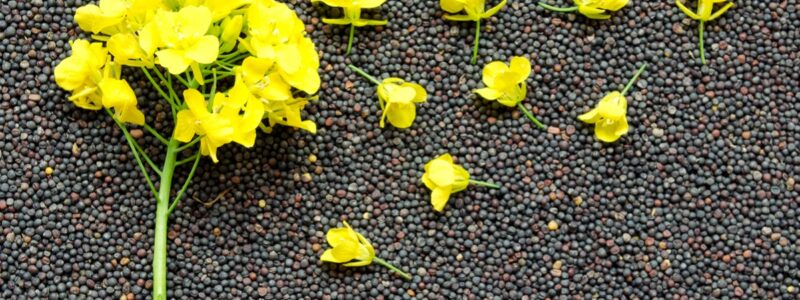
In 2025-2026 marketing year, the export of rapeseed from Ukraine may decrease to the lowest level since 2022-2023 MY and will amount to about 2.7-2.8 mln tonnes, down 13% compared to the current season, according to APK-Inform news agency.
The analysts noted that the reason for such a decrease is the expected decrease in oilseed production, as well as a possible increase in demand from the processing industry.
According to experts, in 2025, the production of rapeseed in Ukraine may decrease to the lowest level since 2022 due to the reduction of winter crops area as a result of moisture deficit in the fall of 2024 and poor wintering of crops in a number of major crop producing regions. In addition, cold weather, frosts and snow in the first decade of April may significantly worsen the situation.
According to APK-Inform estimates, the planted areas under rapeseed are 1.34 mln ha (-4%), while the harvested area may not exceed 1.17 mln ha (-10%) and may be even lower due to unfavorable weather conditions. The forecast of oilseed production in 2025 is about 3.35-3.4 mln tons (-8%).
As for the distribution of rapeseed in the new season, analysts believe that the situation will largely depend on the tariff policy of China and the US.
“We are currently witnessing the deterioration of trade relations between the US and China, the US and Canada, and between China and Canada, which will lead to the redistribution of trade flows of canola and processed products, and may change farmers’ plans for sowing this crop in major regions,” the agency said.
Several countries may try to replace Canadian oil and meal on the Chinese market by increasing production of rapeseed/canola, but the question is in the timing – the products are already in short supply and China needs to increase supplies now, not in the new season.
Due to the trade wars, China is expected to increase its demand for Ukrainian rapeseed oil and meal in the new season, which may increase domestic processing, but it will depend on the ratio of the cost of raw materials and oil on the Ukrainian market. In addition, it may be more difficult for Ukrainian companies to build up stocks, as farmers are in no hurry to sell raw materials under forward contracts.
“The trade may remain weak until the impact of frost and snow on the oilseeds in a number of European countries and in Ukraine in particular is assessed. It is also important to keep in mind that if the situation with tariffs does not change before the new season and all duties for Canada remain in force, Canadian canola may increase its presence on the European market, and, therefore, the window for the Ukrainian oilseed remains limited to the first half of the season,” APK-Inform summarized.